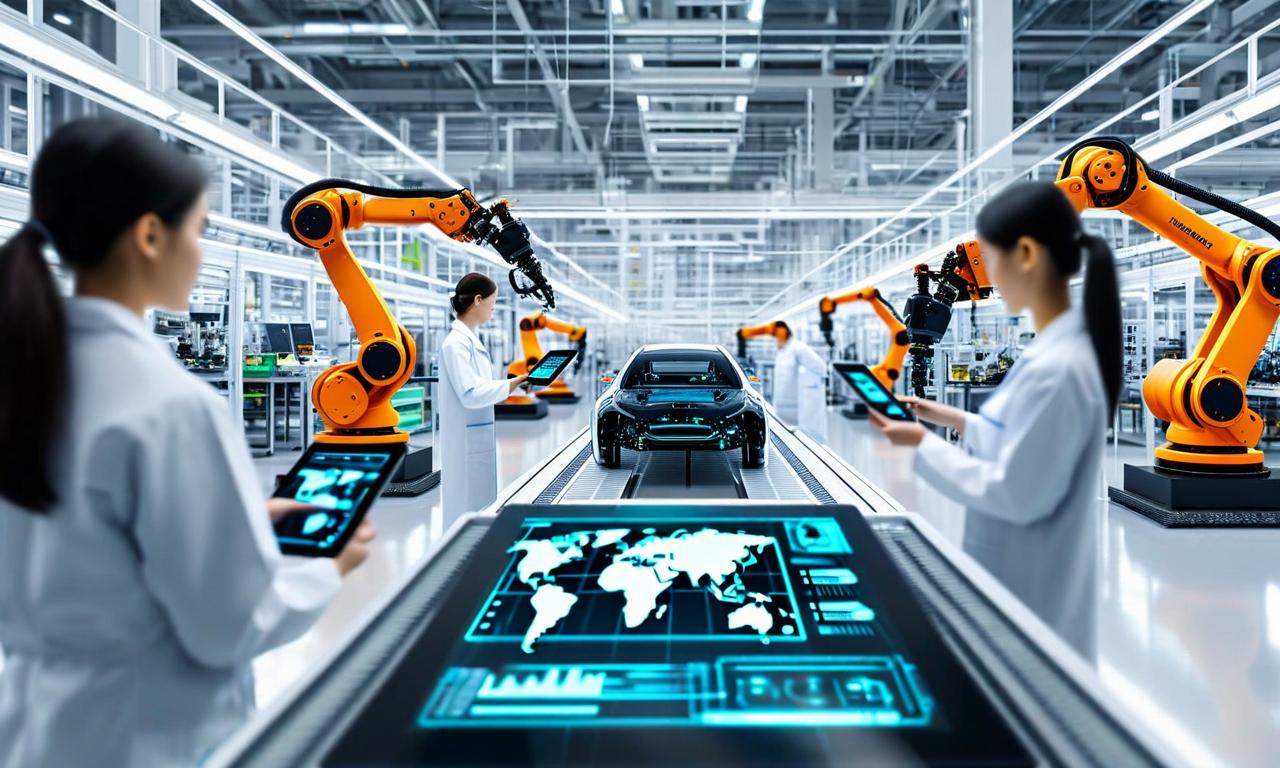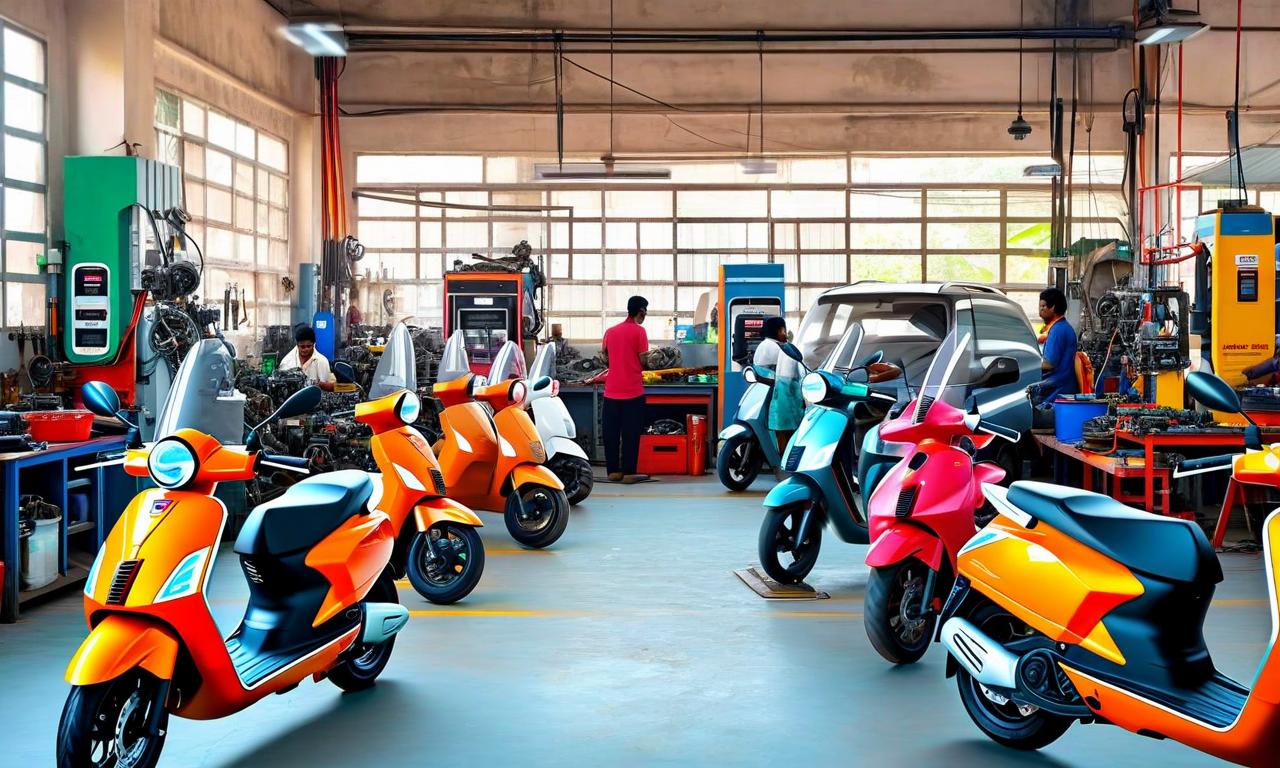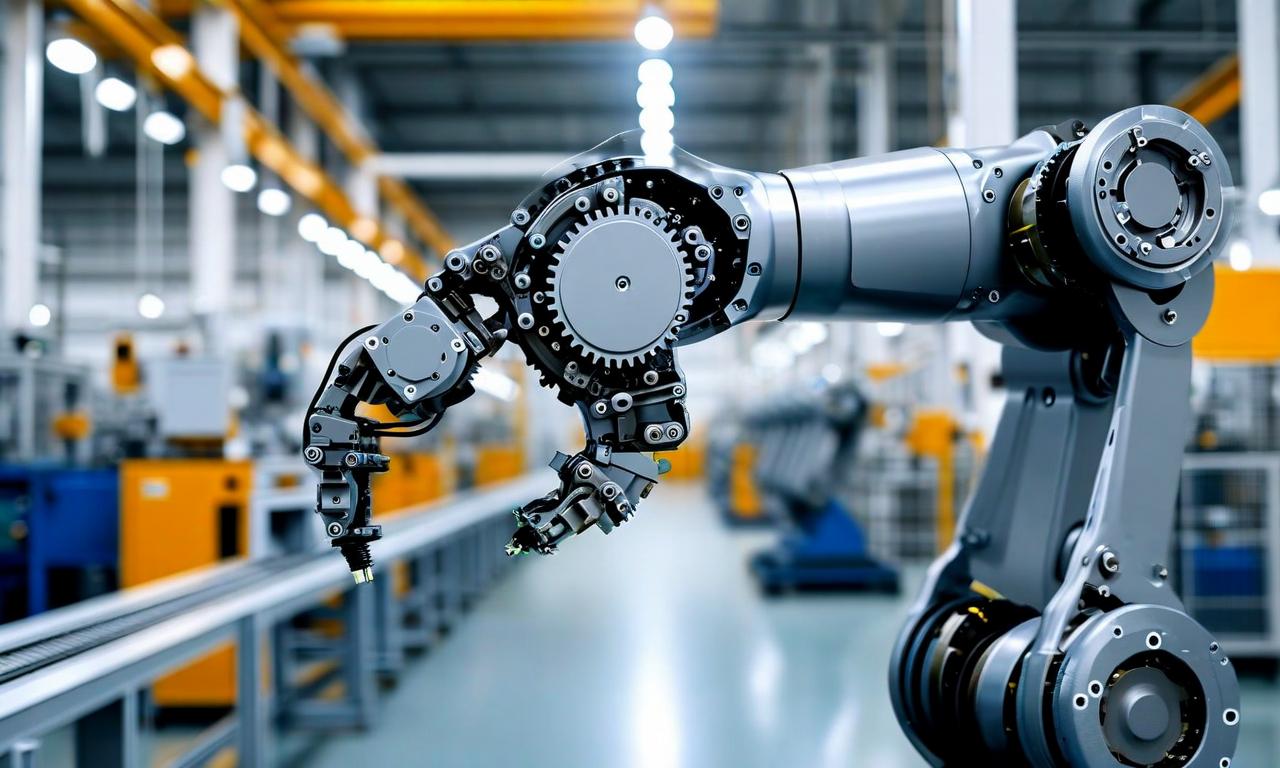Software-Defined Vehicles: Revolutionizing Automotive Manufacturing
PTC India's Country Manager, Raj Kiran, discussed the automotive industry's transition from hardware-centric to software-first approach through Software-Defined Vehicles (SDV). This shift impacts vehicle design, manufacturing, and post-purchase experiences. SDV focuses on building software infrastructure before hardware integration, enabling post-purchase feature updates. PTC offers solutions including PLM and ALM software tools, compliance templates, traceability solutions, and ecosystem management tools to help manufacturers navigate this transition. The transformation opens possibilities for continuous vehicle improvement, enhanced user experiences, and potential new revenue streams.

*this image is generated using AI for illustrative purposes only.
PTC India's Country Manager, Raj Kiran, recently shed light on a paradigm shift in the automotive industry: the transition from a hardware-centric approach to a software-first strategy through Software-Defined Vehicles (SDV). This transformation is reshaping the entire landscape of vehicle design, manufacturing, and post-purchase experiences.
The Software-First Approach
The traditional method of automotive manufacturing involved multiple Electronic Control Units (ECUs) working independently. However, the SDV approach flips this model on its head:
- Software Backbone: The primary focus is now on building a robust software infrastructure before integrating hardware components.
- Post-Purchase Updates: This new approach enables vehicles to receive new features through software updates even after purchase, similar to smartphone updates.
Impact on Product Lifecycle
The shift to SDV affects every stage of a vehicle's lifecycle:
- Design: Requires adoption of Model-Based Systems Engineering
- Manufacturing: Necessitates integrated Product Lifecycle Management (PLM) and Application Lifecycle Management (ALM) solutions
PTC's Role in the Transformation
PTC, a leader in this space, offers solutions to help manufacturers navigate this complex transition:
| PTC's Offerings | Benefits |
|---|---|
| PLM and ALM software tools | Manage hardware-software integration |
| Compliance templates | Ensure cybersecurity compliance |
| Traceability solutions | Maintain oversight across development cycles |
| Ecosystem management tools | Allow automakers to focus on vehicle development |
These solutions enable automakers to concentrate on core vehicle development while efficiently managing the intricate software-hardware ecosystem.
Industry Implications
This transformation represents a significant shift in how vehicles are conceptualized, designed, and manufactured. It opens up new possibilities for:
- Continuous vehicle improvement
- Enhanced user experiences
- Potential new revenue streams through software upgrades
As the automotive industry embraces this software-defined future, it's clear that flexibility, integration, and continuous innovation will be key drivers of success in this new era of vehicle manufacturing.





























